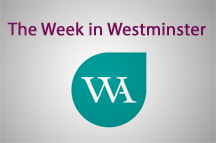 2017 has been a year of continuity and chaos, in that the chaos has been continuous.
2017 has been a year of continuity and chaos, in that the chaos has been continuous.
But, we have learnt this year that chaos can in fact be a stabilising force in politics. Whereas 2016 was a year of political change, this has been a year when many of the ‘big’ things stayed the same.
Labour still haven’t made up their mind on Brexit; Theresa May’s premiership is about as stable as a late-stage game of Jenga and there are open disagreements between cabinet ministers on fundamental issues.
It’s surprising, given the quantity of major political events, that there is so much continuity.
Perhaps this is because the concepts upon which strong political movements are based – a collective vision, a consistent message and a competent leader – haven’t been forthcoming from any of the factions vying for power.
Of course, one major change has occurred: Donald Trump’s megalomaniacal outbursts can be aired in 280 characters rather than 140. Cheers Twitter.
Brexit Means Brexit
Concrete action has been taken this year to leave the European Union, with a timetable for Britain’s exit and the triggering of article 50 taking place earlier in March.
But, a clear vision for post-Brexit Britain has not materialised, and government policy on what a future relationship with the EU will comprise changes day by day.
2017 has arguably been a botch job of British negotiations, with the EU negotiating team watching from across the table as Theresa May sabotaged her parliamentary majority and crossed a number of supposed red lines in the process. It seems that the only thing that has actually been agreed is our financial settlement. But then again, nothing is agreed until everything is agreed.
 Despite calls for a second referendum still firmly in the realms of political blasphemy, the British public’s appetite for Brexit has certainly waned. Depending on which poll (if any) you trust, the majority of Brits now think we shouldn’t bother with Brexit. The loss of key agencies such as the EMA and EBA in recent weeks – along with sluggish economic performance and rising inflation – has provided evidence that the reality of Brexit poses significant challenges.
Despite calls for a second referendum still firmly in the realms of political blasphemy, the British public’s appetite for Brexit has certainly waned. Depending on which poll (if any) you trust, the majority of Brits now think we shouldn’t bother with Brexit. The loss of key agencies such as the EMA and EBA in recent weeks – along with sluggish economic performance and rising inflation – has provided evidence that the reality of Brexit poses significant challenges.
There’s no doubt Brexit will once again dominate the agenda in 2018. Following the government’s defeat on the Brexit bill on December 13th, Theresa May will have to be more conciliatory to the remain camp next year. Who knows, Labour may even develop a position.
Just About Managing
The biggest political shocks of the year were Theresa May’s decision to call a snap general election, and her subsequent success in remaining on as Prime Minister.
Unfortunately for Theresa May, the British public didn’t comply with her request of a big majority to deliver the Brexit deal. The ‘Presidential’ campaign which saw Tory big-hitters such as Boris Johnson confined to the sidelines proved to be a poor decision for the Conservatives, who in the end needed the support of the DUP to form a government.
Poor performances in England were helped out somewhat by a good showing in Scotland, with Ruth Davidson inspiring the confidence of Scottish voters in a way that T-May couldn’t muster down south.
Labour’s messages on health, housing, wages and public funding cuts resonated with the public, surprising commentators and pollsters. Labour looks a more united party going into 2018 following Jezza’s electoral success, but concerns abound that the socialist brand isn’t delivering the poll advantage it should be, given the Tories’ disarray.
Boost for Business
The government has indeed been working on other areas than Brexit. Most notably it forged ahead with its Industrial Strategy, outlining big visions for key sectors that will encourage post-Brexit investment.
Business Secretary Greg Clark delighted in announcing that Britain is open for business. Unfortunately, no one was watching because Harry had just announced his engagement to Meghan.
Still, the Industrial Strategy is about as big of a non-Brexit policy hook the government has right now and it represents the focus of political engagement for business going into 2018.
For now, Theresa May is just about managing to cling onto power. As for 2018, watch out for Michael Gove’s re-entry to the frontline. Having saved the bees at DEFRA, Gove reportedly has his sights set on the top job.
And he’s not the only one.














